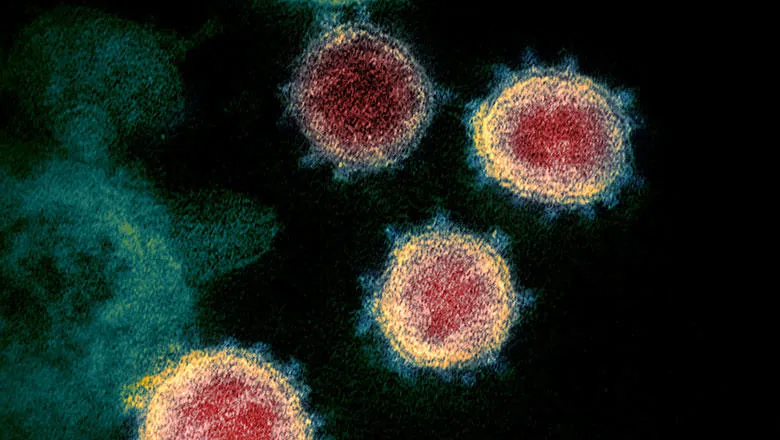It is only right in this time of a national health emergency, that we mobilise our community and fund their research that will help end this pandemic more quickly and ultimately save lives. King’s is at the forefront of innovation and research so I am confident that this new research will offer vital contributions to the understanding and treatment of COVID-19.
Professor Reza Razavi, Vice President & Vice Principal of Research
03 April 2020
King's commits £500k in funding for new and immediate Coronavirus research
King’s College London has launched a rapid-response funding call which has made £500,000 available to enable its research community to tackle the Coronavirus

The work will start immediately with projects researching the development of diagnostic tests, trials of potential therapies as well as the economic impacts of the Coronavirus.
Other projects will investigate approaches to predicting individual responses to the Coronavirus in the most vulnerable patients and the consequences of the current situation for the mental health of NHS staff, patients and students.
The 30 projects are led by researchers from across King’s Health Partners, the Academic Health Sciences Centre consisting of King’s College London, Guy’s and St Thomas’, King’s College Hospital and South London and Maudsley NHS Foundation Trusts, who are uniquely placed to bring cutting-edge research into excellent patient care and investigate the challenges created by COVID-19.
King’s College London has also issued a public call for donations towards its King’s COVID-19 Response Appeal to help ensure researchers, academics, clinicians and medical students have the resources and materials they need to make progress even faster. The university is calling for the student, alumni and wider King’s community to support the fundraising campaign and donations can be made from Friday by visiting www.covid19-appeal.kcl.ac.uk
We all have a key role to play during this highly unusual and uncertain time. King’s researchers and clinicians will work tirelessly to gain further insight into this novel virus, and to find the solutions that we so desperately need. “However, we can’t do this alone. By donating today, you will be supporting those affected during one of the most challenging times we have collectively faced. Your donations will be providing support in vital research and you will be directly impacting our fight against this disease
Professor Robert Lechler, Senior Vice President/Provost (Health) and Executive Director of King’s Health Partners Academic Health Sciences Centre
Some of the projects that have received funding include:
The Immune response to COVID-19
To manage the current crisis effectively, doctors need to be able to identify patients who are most likely in need of intensive care. COVID-IP is a fast-response study of immune responses in COVID-19 patients admitted at St Thomas’ Hospital. Despite treatment, a significant proportion may deteriorate within about a week, requiring breathing-support on the ICU. Although age and underlying conditions are risk factors, they are not completely reliable predictors.
COVID-IP will build on existing, internationally-recognised expertise to monitor patients’ immune responses throughout their first few days in hospital, allowing them to act fast and create immediate impact.
COVID-Pre-Exposure prophylaxis (C-PrEP trial)
Onward transmission of COVID-19 within hospitals is of enormous concern to staff welfare, staff shortages and morbidity of patients and healthcare workers alike. Whilst standard practices are effective, further measures are needed. In a hospital setting, even a modest reduction in transmission, duration or severity of infection would have a dramatic impact on patient health outcomes and staff capacity.
HIV Pre-exposure prophylaxis has dramatically reduced HIV incidence in key populations. This project aims to investigate a similar strategy for COVID-19 through a two arm randomised controlled trial comparing a drug used in HIV prevention to no additional medication. This drug is safe and has been shown to be active against coronavirus in laboratory experiments. As well as preventing individual virus acquisition, effective COVID-19 prevention among staff would have a dramatic impact on staff capacity and consequently patient care and health outcomes.
Investigation of Lipid Ibupofen for the treatment of Coronavirus
There are many claims and myths in the media on the use of ibuprofen and other non-steroidal anti-inflammatory drugs in treating COVID-19. In reality, little is known about the effects and confusion persists. Studies have shown administration of a particular ibuprofen formulation at the right time, could result in reduction in severe complications from the infection.
Rapid Diagnostic Testing
As the COVID-19 pandemic unfolds, hospitals will come under increasing pressure to deliver the increases in sample testing required. A key bottle neck in the COVID-19 crisis is qRT-PCR (quantitative reverse transcription-PCR) testing. This bottle neck is comprised of sample preparation time, staff needed and reagents that will run low. This project will leverage the local resources in the School of Immunology and Microbial Sciences to create reserve contingency diagnostics to facilitate rapid COVID19 testing of NHS samples at Guy’s.
The Impact of Self-Isolation in older adults
COVID-19 has serious health implications for older people, current methods of quarantine, such as self-isolation and limiting social contact with family and friends, may have psychosocial impacts on this age group.
Limited information is present on psychological impact of self-isolation on loneliness, quality of life and over health care needs of older adults. In collaboration with the University of Exeter, this online observational project through PROTECT will also address on coping strategies people may employ to improve their wellbeing during times of self-isolation.
Supporting the Mental Health of NHS Staff
During the Covid-19 pandemic, many NHS staff will have to make difficult choices they have not before faced and may have to deliver care in less than optimal conditions. Many of the ethical dilemmas staff face will be new, certainly in scale and probably in nature. Moral injury is a relatively new concept with particular relevance to the current COVID-19 outbreak.
This project will explore impact of the current work NHS staff are doing in order to identify how best to support acute hospital staff during pandemics and, importantly, how to mitigate the negative moral impacts of such work.
Taking education online: the impact on student and staff mental health
Whilst the use of digital technologies for teaching and assessment has grown gradually in Higher Education, COVID-19 has forced universities to rapidly implement these services. The researchers want to explore how staff and students feel about online education. They further aim to identify what is required to ensure that staff and students feel supported and retain a sense of university identity while working remotely. The researchers hope to gain an understanding of potential costs and benefits to online education and how to support high levels of engagement for students and staff.
The Experience Economy in the Time of COVID-19
Globally, as part of social distancing measures, the recent COVID-19 outbreak has seen an unprecedented number of cultural institutions abruptly close their doors to the public. It has never been more crucial to maintain access to arts and culture for all, and to find ways remotely to foster their associated empathy, intimacy, emotion, creativity and closeness. This project will research and deliver alternative cultural experiences to vulnerable audiences, through in-the-wild and prototyping design experiments. The project will provide pragmatic solutions which respond not only to the current crisis but to wider questions of access in the sector.


